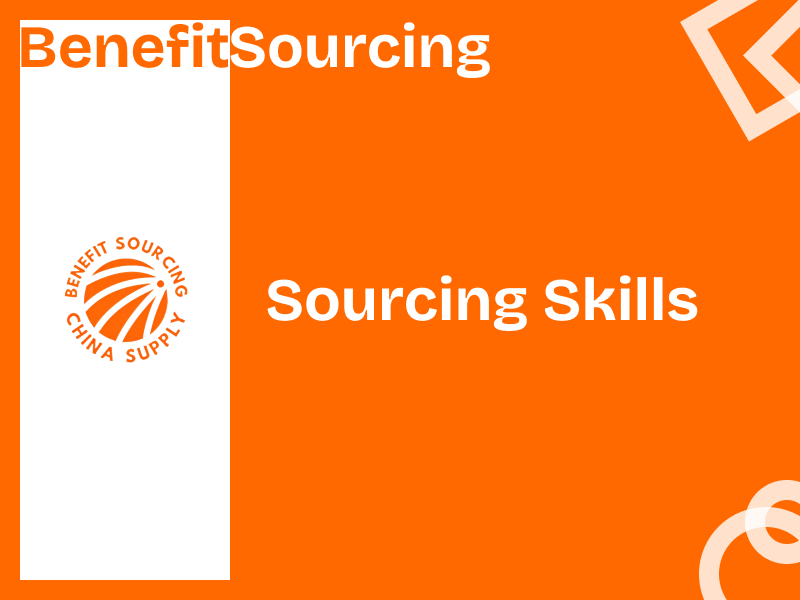Identifying the Right Suppliers: Key Characteristics of Reliable Partners

When sourcing products from China, selecting the right suppliers is the cornerstone of building a sustainable and profitable supply chain. For small-to-medium businesses, e-commerce sellers, and individual retailers with limited resources, identifying reliable partners requires a systematic approach. Below are the essential characteristics to prioritize during your supplier evaluation process:
1. Certifications and Compliance
Reliable suppliers adhere to international standards and hold relevant certifications. Look for:
- ISO certifications (e.g., ISO 9001 for quality management, ISO 14001 for environmental practices)
- Product-specific certifications (CE, FCC, RoHS for electronics; FDA for food-contact materials)
- Ethical compliance (BSCI, Sedex, or SA8000 for labor practices)
- Industry-specific licenses (e.g., textile suppliers with Oeko-Tex certification)
Always verify certifications through official databases or third-party platforms like SGS or TÜV. Avoid suppliers who cannot provide verifiable documentation.
2. Production Capacity and Scalability
A trustworthy partner should balance current production capabilities with flexibility to accommodate future growth. Assess:
- Factory size and equipment: Request virtual factory tours or HD videos showing production lines.
- Minimum Order Quantity (MOQ): Ideal suppliers offer lower MOQs (e.g., 100–500 units) for small businesses.
- Lead times: Consistent delivery schedules (e.g., 30–45 days for customized orders) indicate efficient workflow management.
- Scalability: Ask how quickly they can ramp up production by 20%–50% if your demand increases.
Suppliers unwilling to share production details or insist on unusually high MOQs may lack transparency.
3. Quality Control Systems
Robust quality assurance protocols separate professional suppliers from unreliable ones. Key indicators include:
- In-house QC teams: Dedicated staff conducting pre-production, during-production, and pre-shipment inspections.
- Third-party inspections: Willingness to allow inspections by companies like QIMA or Asia Inspection.
- Defect rate: Top suppliers maintain defect rates below 2%–3%.
- Sample policies: Always request physical samples before bulk orders. Reputable suppliers charge reasonable sample fees (often refundable after order placement).
Test samples rigorously under real-world conditions. For example, stress-test electronic components or wash textile samples repeatedly to check colorfastness.
4. Communication Efficiency
Overcoming language and cultural barriers is critical. Prioritize suppliers who:
- Respond within 24 hours: Slow replies often signal poor client management.
- Assign dedicated account managers: English-speaking representatives simplify negotiations.
- Use clear documentation: Proforma invoices, contracts, and specifications should leave no room for ambiguity.
- Leverage technology: Platforms like Alibaba Trade Assurance or WhatsApp Business streamline communication.
Avoid partners who rely solely on email – a mix of messaging apps, video calls, and project management tools ensures smoother collaboration.
5. Transparent Pricing Structure
Hidden costs can erode profit margins. Reliable suppliers provide:
- Detailed breakdowns: Unit price, tooling fees, packaging costs, and shipping terms (FOB, EXW, DDP).
- Price validity periods: Fixed quotes for 30–60 days prevent unexpected increases.
- Payment flexibility: Options like 30% deposit + 70% balance, or LC at sight for larger orders.
Cross-reference quotes with industry benchmarks. For example, silicone kitchenware typically costs $1.50–$3.00/unit for mid-range quality. Quotes significantly below market rates may indicate subpar materials.
6. Financial Stability
A supplier’s financial health impacts their ability to deliver consistently. Check:
- Business licenses: Verify registration dates and capital through government portals like China’s National Enterprise Credit Information System.
- Trade references: Request contact information for 2–3 existing clients.
- Credit reports: Platforms like Global Sources offer supplier credit checks.
Suppliers established for 5+ years with steady client portfolios generally pose lower risks.
7. Intellectual Property (IP) Protection
Protect your designs and branding by working with suppliers who:
- Sign Non-Disclosure Agreements (NDAs)
- Avoid selling identical products to competitors
- Support private labeling and custom packaging
Conduct reverse image searches periodically to detect unauthorized sales of your products.
8. Logistics and Problem-Solving Capabilities
Top suppliers facilitate smooth logistics by:
- Recommending reliable freight forwarders
- Assisting with customs documentation (e.g., HS codes, certificates of origin)
- Resolving shipping issues proactively (e.g., port delays, container shortages)
Ask how they handled recent challenges like COVID-19 disruptions or Red Sea shipping reroutes to assess crisis management skills.
9. Digital Competence
Modern suppliers should demonstrate:
- E-commerce integration: Compatibility with platforms like Shopify or Amazon FBA
- Inventory tracking systems: Real-time updates via ERP or WMS software
- Cybersecurity: Secure payment gateways and data protection measures
A supplier’s Alibaba storefront with 95%+ positive ratings and Gold Supplier status often indicates strong digital operational capabilities.
10. Cultural Alignment
Build long-term partnerships by working with suppliers who:
- Understand Western product safety standards
- Respect international holidays and business hours
- Embrace sustainability (e.g., recyclable packaging, energy-efficient manufacturing)
For instance, European buyers might prioritize suppliers with carbon-neutral certifications, while U.S. sellers may need CPSC-compliant children’s products.
Verification Checklist
Before finalizing a supplier:
- Cross-check business licenses on official government websites
- Conduct video audits of production facilities
- Test 2–3 production samples
- Verify bank accounts through a trial transfer ($50–100)
- Start with a small trial order (20%–30% of planned volume)
Platforms like Alibaba’s Trade Assurance provide escrow protection, while inspection services like V-Trust can mitigate risks for first-time buyers. Remember, investing 2–3 weeks in thorough supplier vetting can prevent costly mistakes and build foundations for years of successful collaboration.
Need a sourcing agent in China?
Just send us your demand with the form below.